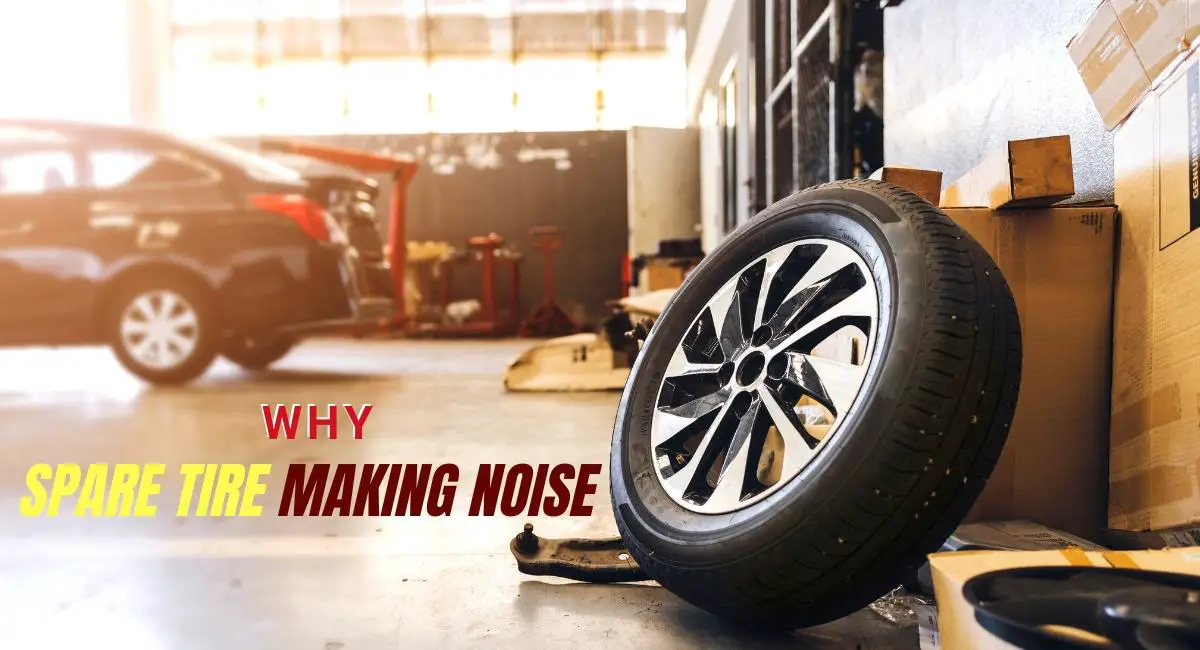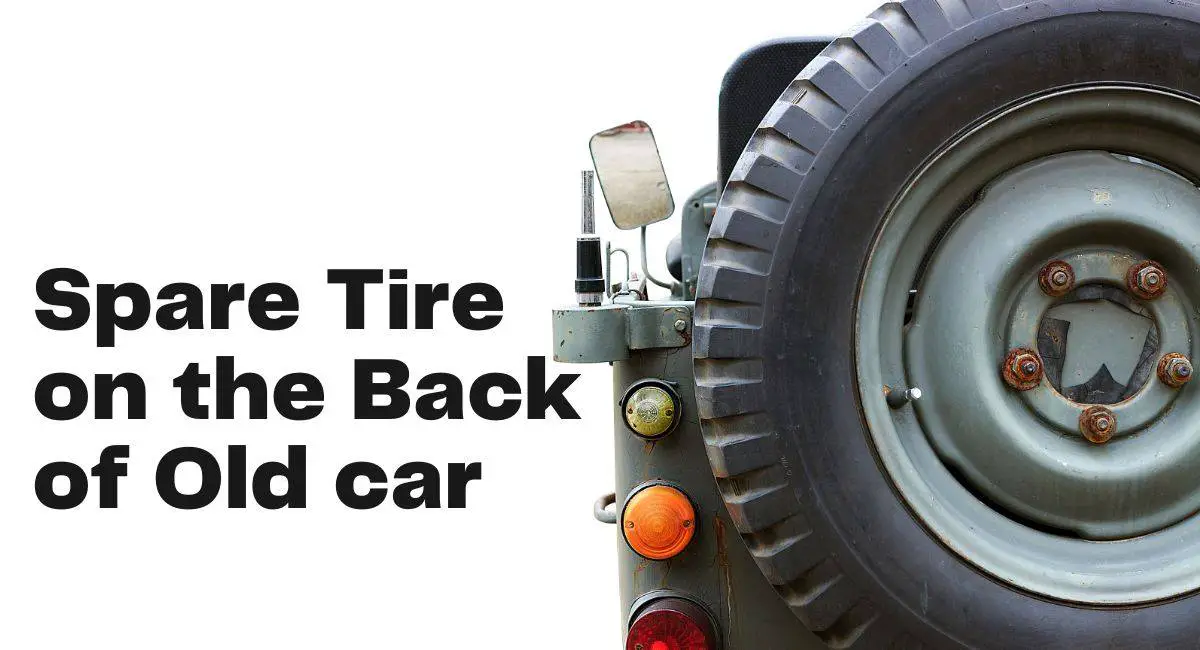When driving, you may occasionally notice an unusual noise coming from your spare tire. This noise can be quite bothersome and may raise concerns about the safety and reliability of your vehicle. In this article, we will explore the reasons why your spare tire may be making noise and provide insights into resolving this issue effectively.
Understanding Spare Tires
Spare tires, also known as “donut” tires or compact spare tires, are designed to be temporary replacements in case of tire emergencies. They are typically smaller and lighter than regular tires, allowing for easy storage and installation. Spare tires are not meant for prolonged use or high-speed driving, but they provide a convenient solution to get you to the nearest service station or tire shop.

Common Causes of Spare Tire Noise
Several factors can contribute to the noise generated by a spare tire. Understanding these causes will help you diagnose and address the issue appropriately.
Tread Wear
One of the primary causes of spare tire noise is tread wear. Spare tires often have limited tread depth, making them more susceptible to wear and generating excessive noise during use.
Improper Installation
Improperly installing the spare tire can result in noise while driving. If the tire is not secured properly or if there are loose components, it can lead to vibrations and rattling sounds.
Loose Spare Tire Mount
A loose spare tire mount can also be a reason for noise. The mount should be securely fastened to prevent any movement or vibrations that may cause rattling or humming sounds.
Alignment Issues
Misalignment of the spare tire can cause uneven wear, resulting in noise. If the spare tire is not aligned correctly with the vehicle’s other tires, it can create a dragging or scraping noise while driving.
Suspension Problems
Issues with the suspension system, such as worn-out shocks or struts, can transfer vibrations to the spare tire, leading to noise. Faulty suspension components should be inspected and replaced if necessary.

Diagnosing Spare Tire Noise
To identify the exact cause of the spare tire noise, follow these diagnostic steps:
Visual Inspection
Inspect the spare tire visually for any visible signs of damage or irregularities. Look for tread wear, bulges, or other issues that may contribute to the noise.
Checking Tread Wear
Measure the tread depth of the spare tire using a tread depth gauge. If the tread is worn beyond the recommended limit, it may be a significant factor in the noise production.
Examining Mounting System
Ensure that the spare tire is properly mounted and secured. Check for any loose components, including the mount, bolts, and brackets.
Suspension and Alignment Evaluation
Have a professional mechanic examine the suspension system and alignment of your vehicle. They will be able to determine if any issues in these areas are contributing to the spare tire noise.
Resolving Spare Tire Noise Issues
Now that you have identified the cause of the spare tire noise, it’s time to take appropriate actions to resolve the problem. Here are some potential solutions:
Replacing the Spare Tire
If the spare tire is excessively worn or damaged, it’s recommended to replace it with a new one. Ensure that the new tire meets the specifications recommended by the vehicle manufacturer.
Proper Installation Techniques
When installing the spare tire, follow the manufacturer’s guidelines precisely. Make sure all components are securely fastened and aligned correctly.
Securing the Spare Tire Mount
If the spare tire mount is loose, tighten it using the appropriate tools. Ensure that all connections are tightened properly to prevent any movement that may lead to noise.
Addressing Alignment and Suspension Problems
If alignment or suspension issues are contributing to the spare tire noise, consult a professional mechanic to correct these problems. They may recommend adjustments or component replacements to eliminate the noise.
Maintenance Tips for Spare Tires
To ensure optimal performance and reduce the chances of noise from your spare tire, consider the following maintenance tips:
Regular Tire Inspection
Inspect your spare tire regularly for signs of wear, damage, or loss of air pressure. Address any issues promptly to prevent noise and ensure safety.
Rotating the Spare Tire
Include the spare tire in your regular tire rotation schedule. This practice helps distribute wear evenly among all tires and prolongs their lifespan.
Checking Air Pressure
Maintain the recommended air pressure in your spare tire. Consult your vehicle’s manual or the tire manufacturer’s guidelines for the appropriate pressure levels.
Storing the Spare Tire
When not in use, store the spare tire in a cool and dry location. Avoid exposure to extreme temperatures, sunlight, or chemicals that can degrade the tire’s quality.
Frequently Asked Questions (FAQs)
Can I drive with a noisy spare tire?
It’s not recommended to drive with a noisy spare tire for an extended period. Excessive noise may indicate underlying issues that could compromise your safety. Get it inspected and resolved as soon as possible.
How often should I inspect my spare tire?
Inspect your spare tire at least once every few months or before long trips. Regular inspections allow you to catch any potential problems early and take appropriate action.
Can I repair a spare tire that’s making noise?
Repairing a spare tire depends on the specific issue causing the noise. While some problems can be fixed, others may require replacement. Consult a professional for an accurate assessment.
Are alignment issues the only cause of spare tire noise?
No, alignment issues are one of the causes, but there are other factors like tread wear, improper installation, loose tire mount, and suspension problems that can contribute to spare tire noise.
Can I use a regular tire as a spare?
Using a regular tire as a spare is not recommended. Spare tires are designed specifically for temporary use and have different specifications compared to regular tires. It’s best to use a designated spare tire for optimal safety and performance.
Conclusion
A noisy spare tire can be an inconvenience and cause concern for drivers. By understanding the common causes of spare tire noise and following the appropriate diagnostic and resolution steps, you can effectively address this issue. Remember to regularly inspect and maintain your spare tire to ensure its reliability and minimize noise-related problems.
